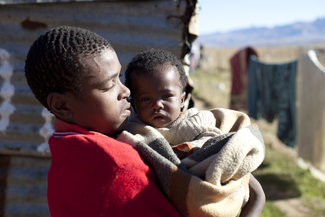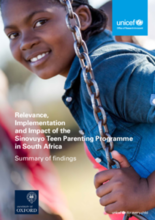

Displaying 201 - 210 of 576
This country care review includes the care-related Concluding Observations adopted by the Committee on the Rights of the Child and the Committee on the Rights of Persons with Disabilities.
This article describes and compares the Not in Employment, Education, or Training (NEET) and Education, Employment, and Training (EET) status of care leavers from Girls and Boys Town after 1 and 2 years and in relation to other outcomes.
This article from GroundUp describes the high prevalance of delays experienced by those seeking foster care grants in South Africa.
RIATT-ESA seeks to carry out a review of partners’ programmes and develop a booklet of partners’ promising practices in providing comprehensive care and support for children and youth affected by HIV and AIDS in Southern Africa.
This article from The Citizen discusses the situation of "unsafe abandonments" of infants in South Africa.
This report summarizes research findings on the impact of the Sinovuyo Teen Parenting programme piloted in the Eastern Cape, South Africa, between November 2014 and September 2016.
This presentation provides an overview of care-leaving research in South Africa.
In this qualitative study with four Child and Youth Care Centers in a town in the Eastern Cape, South Africa, focus groups were held with young people in care and their care workers to discuss preparation for leaving care and aftercare services and the evaluation of these by each group of participants.
Drawing on data from a small qualitative study carried out in four child and youth care centres in a town in the Eastern Cape of South Africa, this article argues that possible selves methods provide a useful tool with which to unpack the content of future focus, and in doing so identify contributors to resilience in care-leavers.
In this study, a qualitative enquiry, using grounded theory, was conducted to establish what factors dissuade involuntarily childless black South Africans from legally adopting abandoned children.



